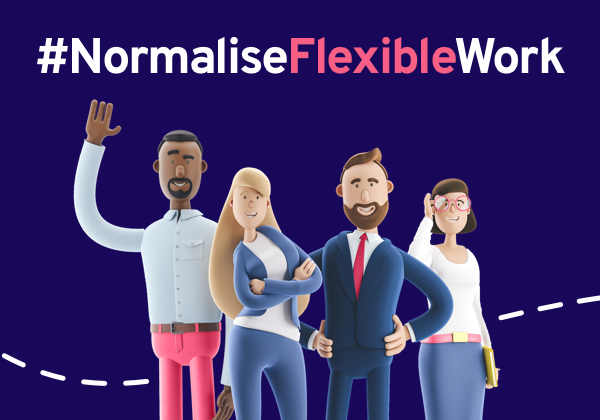It’s Time To Normalise Flexible Work
28th Feb 2021

Here at Flexa, we believe that flexible working should be for everyone.
But this isn’t just how we feel; we have the stats to back it up.
According to a national YouGov survey commissioned by Flexa, we have uncovered some fascinating insights into the attitude changes that this prolonged period of flexible working has precipitated:
Flexible work is for everyone
Previously a gendered term, we used to see flexible work associated more with women. Whilst there are various factors at play, this perception is likely to have been down to working mums juggling their career and parenthood, and traditional notions of ‘the male breadwinner.’
We know firsthand that this is no longer the case, and that flexible work matters to both parties, which is great news for our careers - and gender equality.
Some interesting statistics from our national YouGov survey revealed:
- 68% of men say that flexible working is important to them, versus 74% of women
- Demand to work flexibly in the future from men increased by 30% during the pandemic
- 55% of men would ask to work flexibly vs 56% of women
Flexible work is not a “Covid special”
With Covid restrictions easing and a roadmap in sight with possibilities of returning to the office, it is now more important than ever to #NormaliseFlexibleWork.
As the pandemic accelerated remote working, office workers have been given a real taste of what working from home looks like. Furthermore, the duration of lockdowns has meant our working habits have now been cemented as a more permanent lifestyle, and not a temporary experience. This newfound freedom of not being shackled to a specific office location has enabled people to move home - either to bigger spaces with a home office or to be in a more desirable location, near the sea or in the fresh air of the countryside, with the median distance moved by UK homebuyers in 2020 having increased to 10 miles (reallymoving).
As the pandemic has put health to the top of the agenda, more of us are realising the importance of having a healthy work/life balance - especially with office commutes now eradicated, we’re forced to make a proactive effort to keep our bodies fit & healthy - to which a flexible working lifestyle is key.
Flexible work matters to employers too
Studies have shown that not only is there a benefit to employees to offer flexible working, but that the employer also stands to benefit as it boosts productivity, with 9 in 10 employees reporting flexible working to be a key motivator to their productivity at work.
But with 24% of respondents saying that they would not ask for flexible working if it wasn’t offered, it is clear that employees do not want to have to ask for flexibility. Instead, there is a strong preference for flexibility to be mentioned upfront in a job description: 71% of people are more likely to apply for a role that directly mentions flexible working.
Join the movement!
Join the movement and #NormaliseFlexibleWork by sharing your story with the hashtag and tag us in too on any social channel to make sure that flexibility in the workplace does not remain a women’s issue, a Covid special, or a problem for employers.
Source: reallymoving, https://www.showhouse.co.uk/news/10-statistics-that-tell-the-story-of-home-movers-in-2020/
Source: CIPD, https://www.cipd.co.uk/Images/flexible-working-business-case_tcm18-52768.pdf